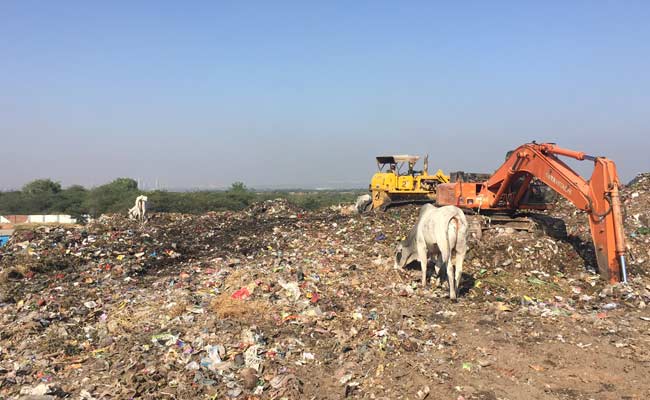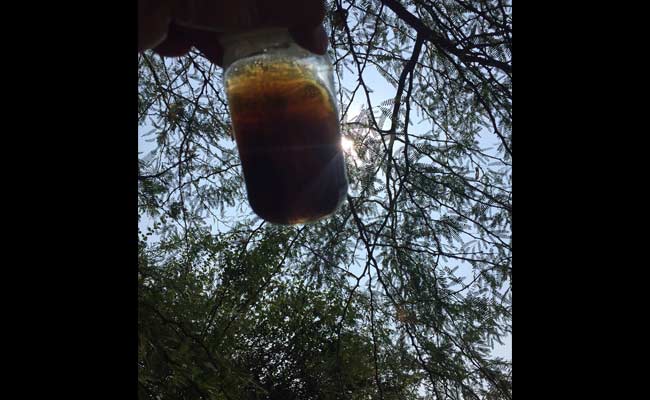Experts say that since garbage is unsegregated in India, lead and mercury and other toxic chemicals end up in the garbage and then in the groundwater in places like Bandhwari.
New Delhi:
Are some residents of Delhi and Gurgaon drinking toxic water? That's the question the National Green Tribunal wants to find out after it ordered the Haryana government to carry out an analysis of the groundwater around the Bandhwari waste processing plant on the Gurgaon-Faridabad road.
At the site of the waste plant, it is difficult to stand for too long because of the noxious fumes emanating from pond.
According to locals, this natural pond, just outside the boundary of the defunct plant used to help recharge the ground water table. Today it is a cesspit of black liquid.
 The Bandhwari waste processing plant is the only facility to handle more than 1,000 tonnes of garbage generated daily by Gurgaon and Faridabad.
The Bandhwari waste processing plant is the only facility to handle more than 1,000 tonnes of garbage generated daily by Gurgaon and Faridabad.
The plant had come up despite opposition from environmentalists and locals who had objected to it being located in the Aravallis.
However since the end of 2013 it has been defunct due to a fire which had destroyed the machinery that helped turn kitchen waste into manure and the inflammable material for producing electricity.
"The government can say a anything in its report, we are ensuring that we do our own sampling," said Ameena Sherwani one of the residents of Gurgaon.
 Experts say that since garbage is unsegregated in India, lead and mercury and other toxic chemicals end up in the garbage and then in the groundwater in places like Bandhwari.
Experts say that since garbage is unsegregated in India, lead and mercury and other toxic chemicals end up in the garbage and then in the groundwater in places like Bandhwari.
"The water has started tasting bad and it makes the children sick," said Rajesh who lives just a few kilometres from the waste plant in Manger village.
At the site of the waste plant, it is difficult to stand for too long because of the noxious fumes emanating from pond.
According to locals, this natural pond, just outside the boundary of the defunct plant used to help recharge the ground water table. Today it is a cesspit of black liquid.

The plant had come up despite opposition from environmentalists and locals who had objected to it being located in the Aravallis.
However since the end of 2013 it has been defunct due to a fire which had destroyed the machinery that helped turn kitchen waste into manure and the inflammable material for producing electricity.
"The government can say a anything in its report, we are ensuring that we do our own sampling," said Ameena Sherwani one of the residents of Gurgaon.

"The water has started tasting bad and it makes the children sick," said Rajesh who lives just a few kilometres from the waste plant in Manger village.
Track Latest News Live on NDTV.com and get news updates from India and around the world

